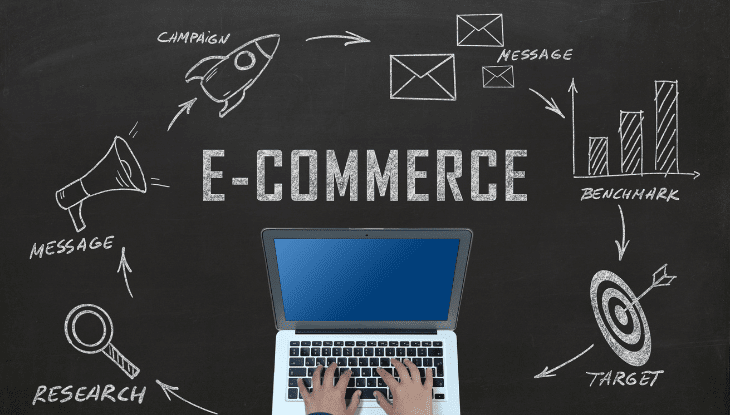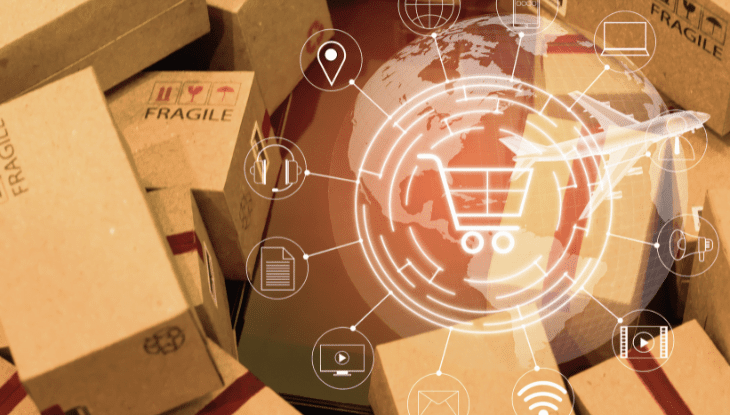What is fulfillment in e-commerce? Fulfillment plays a key role in order processing and logistics for online stores. This process encompasses all stages from the moment a customer places an order, through preparation, packaging, to shipment to the buyer.
In this article, you will discover the secrets of fulfillment in e-commerce. You will learn what elements this process involves, why it is so important for online sellers, and how to choose the best fulfillment service provider.
What is fulfillment in e-commerce?
This is a process that ensures the smoothness of every online transaction. It begins when a customer places an order on a website. It then goes through stages such as product selection, packaging, and final delivery to the recipient. Each of these stages requires precision and commitment. This allows online stores to offer fast and seamless order processing. Ultimately, this translates into greater customer satisfaction.
A well-organized order processing process is the foundation for effective e-commerce. Not only does it increase the operational efficiency of the company, but it also builds a positive brand image in the eyes of customers. Satisfied customers are more likely to return for further purchases. Moreover, they recommend the store to their friends. Thus, efficient fulfillment process becomes a key element in building a loyal customer base.

Why is this process important?
Fulfillment in e-commerce plays a crucial role in ensuring customer satisfaction. Its importance is not limited to the moment of purchase. It covers the entire process from placing an order to delivering the package to the customer’s door.
Speed and efficiency in these actions are crucial. Customers value hassle-free shopping experiences. Stores that offer such services gain their trust. Trust is the basis of long-term relationships.
Furthermore, a well-organized process has a direct impact on customer loyalty. When a customer knows that their order will be processed quickly and without errors, they are more likely to make repeat purchases.
Loyal customers not only generate steady revenue. They also often recommend the store to their friends. As a result, efficient fulfillment translates into increased sales and a positive brand image in the minds of consumers.
How to choose a fulfillment service provider?
When choosing a fulfillment service provider, it is crucial to pay attention to several important aspects. The cost of services is, of course, important, but not the only factor to consider. The location of warehouses is also important. Strategically located warehouses can significantly speed up deliveries. This, in turn, improves customer satisfaction. Equally important is the flexibility in handling various products. This ensures that the provider can meet all the needs of your e-commerce.
One cannot forget about the quality of customer service. A provider that offers solid support is worth its weight in gold. Good communication and quick response to potential problems can greatly facilitate cooperation. Before making a final decision, it is worth checking the opinions of other customers about the provider. Examples of companies that have already used its services can be a valuable source of information. This way, you will make a decision based on real experiences, not just promises.

Technologies in e-commerce fulfillment
Warehouse Management Systems (WMS) significantly speed up picking and packing processes in e-commerce. Automating these activities reduces the time from order placement to shipment. Companies investing in such technological solutions experience increased efficiency. This translates into better customer service. Customers value speed and precision in order fulfillment. Therefore, stores that offer these benefits build a strong position in the market.
Innovations such as artificial intelligence and robotics continue to expand e-commerce capabilities. They allow for the automation of more processes and offer personalized solutions. Artificial intelligence, for example, can analyze purchasing data. This allows companies to better manage inventory levels. This, in turn, facilitates adapting the offer to customer expectations.
Companies that use these modern technologies gain a competitive advantage. They not only streamline internal processes but also assist in building better sales and marketing strategies.
What is fulfillment and how does it impact returns?
Fulfillment is not just about order shipping. It also includes efficient handling of returns. Proper return logistics builds trust among customers. They know they can easily return a product if it doesn’t meet their expectations. Such confidence significantly lowers the purchase barrier. Customers are more likely to make a purchase, knowing that the return process is simple and hassle-free. This, in turn, affects the increase in sales in the online store.
Managing returns is also an opportunity for analysis and improvement of the quality of offered products. Each return provides valuable feedback from the customer. Stores that analyze the reasons for returns can better adjust their offer. Making corrections to products or their descriptions can reduce the number of returns in the future. Fewer returns mean higher profitability and better shopping experiences for customers.
FAQ – frequently asked questions
What exactly is fulfillment in e-commerce?
Fulfillment in e-commerce is the process that involves receiving, picking, packing, and shipping online orders to customers.
Why is fast order fulfillment important in e-commerce?
Fast order processing increases customer satisfaction, leading to their loyalty and willingness to make repeat purchases.
What technologies support the fulfillment process?
In the fulfillment process, warehouse management systems (WMS) play a crucial role by automating many stages of order processing.
How to choose a fulfillment service provider?
When choosing a supplier, it is important to consider costs, warehouse locations, capabilities for handling various products, and quality of customer service.

